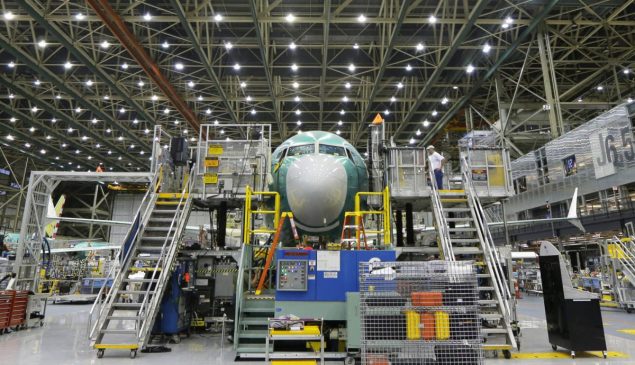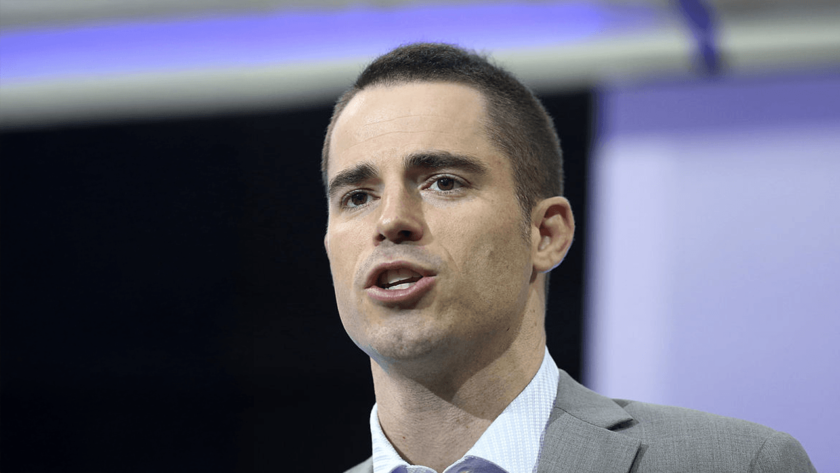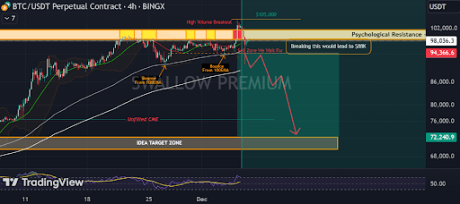- Boeing has found debris in the fuel tanks of most of the undelivered 737 MAX jets it has tested so far.
- Boeing’s quality control issues raise questions about the company’s monopoly and its merger with McDonnell Douglas 20 years ago.
- Boeing may be exploiting its monopoly to deliver substandard products to consumers. This should draw the attention of antitrust regulators.
Boeing (NYSE: BA) has found foreign object debris in most of the undelivered 737 MAX jets it has inspected so far. The American planemaker first announced that it would be inspecting the entire grounded fleet after discovering FOD in several of its planes last week.
This comes at a time when Boeing is trying to regain the flying public’s trust and bring the grounded 737 MAX back into service. But with foreign objects found in the fuel tanks of most of Boeing’s undelivered 737 MAX planes, it’s almost certain that the planes it has already delivered also contain the dangerous debris. This makes the 737 MAX a continual danger to consumers if it is ever ungrounded.
Boeing’s poor quality control is an unacceptable risk to the flying public. Antitrust regulators should look into breaking the company up to promote competition in the industry.
What Happened to Boeing’s Culture?
The Frankenstein corporation we now know as The Boeing Company came into being through a merger between Boeing and McDonnell Douglas in 1997. McDonnell Douglas was, at the time, plagued with quality control issues. It experienced some of the worst aviation disasters in history.
In 1974, 346 people died after a DC-10 crashed due to a faulty cargo door. In 1979, 271 people died when a DC-10 went down in Chicago due to maintenance issues.
The FAA later grounded the DC-10 and worked with McDonnell Douglas to fix the plane’s design.
Many believe Boeing inherited McDonnell Douglas’s questionable culture when it merged the struggling manufacturer into its civil aviation wing over 20 years ago.
Clive Irving, author of the book “Jumbo: The Making of the Boeing 747”, states the following:
The fatal fault line was the McDonnell Douglas takeover, Although Boeing was supposed to take over McDonnell Douglas, it ended up the other way around.
The New York Times also gave an ominous warning about the merger, stating the following:
The full effect of the proposed merger on employees, communities, competitors, customers, and investors will not be known for months, maybe even years.
It looks like we are finally seeing the effects of Boeing’s disastrous and monopolistic merger with McDonnell Douglas. The combined company is exploiting its position as the only game in town to deliver dangerous and low-quality products to consumers.
Boeing’s only material competition, Airbus, is on a different continent and is so backlogged with orders that it can’t properly punish Boeing for its continual failure.
A Dangerous Monopoly
Boeing’s 737 MAX debacle is a perfect example of what happens when antitrust regulators fail to prevent business monopolies. Competition is stifled, crony capitalism flourishes and consumers pay the price – sometimes with their lives.
According to the Washington Post in 1997, the McDonnell Douglas merger would have never been approved in the past:
A generation ago, government officials would have rejected such a merger out of hand as a clear violation of the antitrust laws. Traditionally, antitrust regulators have viewed mergers that reduce competition to two firms (duopolies) with almost as much suspicion as markets with one firm (monopolies).
The concern is that with only two, it will be too easy for the companies to settle into a live-and-let-live arrangement — one in which they can raise prices in tandem, informally divide the market into “your customers” and “my customers,” and put off the expense of developing new technologies.
With the help of McDonnell Douglas, Boeing has done exactly that. Instead of building a new narrow-body jetliner from the ground up, Boeing decided to create the 737 MAX on the frame of earlier planes.
This decision led to the faulty MCAS software that contributed to the deaths of 346 people in two fatal crashes.
Boeing Uses the U.S. Government to Stifle Competition
Boeing also has a long history of using its relationship with the United States government to stifle competition – a textbook monopolistic strategy.
In 2017, Boeing convinced the U.S. Commerce Department to place duties of almost 300% on passenger Jets made by Bombardier, a small Canadian rival. Now, the government is considering blocking General Electric from supplying engines to Comac, a Chinese company developing a new passenger jet.
Protecting American business interests is a good idea. But it shouldn’t come at the expense of the American consumer who is being essentially forced to fly on Boeing planes due to a dearth of competition in the market.
Is it Time to Dismantle Boeing?
With the discovery of foreign object debris in most of Boeing’s undelivered 737 MAX jets, it isn’t unreasonable to assume the jets Boeing has already delivered also contain the dangerous debris. This means Boeing’s monopoly is no longer an abstract issue for lawmakers to discuss. It has become a real danger to the flying public.
Are you ready to fly on a plane with loose tools and other garbage floating around in its fuel tank – a plane that has already led to the preventable deaths of 346 people in just three years of service?
We can no longer rely on Boeing to regulate itself. Anti-trust officials need to step in and bring competition back to the aircraft industry.
Disclaimer: The opinions expressed in this article do not necessarily reflect the views of CCN.com.
This article was edited by Sam Bourgi.
Last modified: February 22, 2020 8:07 PM UTC




